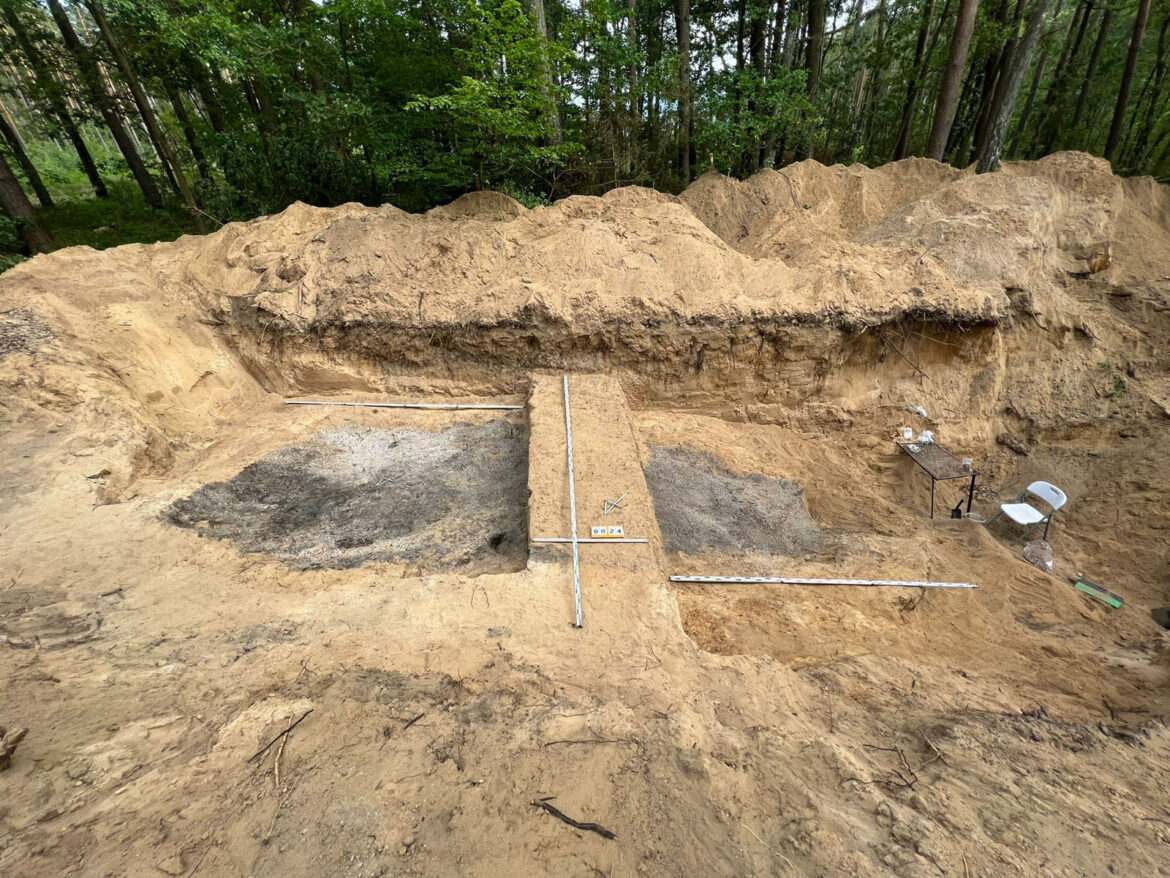Almost 17 tonnes of human ashes were found in a mass grave in Działdów, which indicates that at least 8,000 people were murdered there. They were prisoners of the German death camp Soldau, which was an important part of the German terror system between 1939 and 1945. Geneticists from the Pomeranian Medical University (PUM) participated in the investigations.
The primary task of the German camp was the planned extermination of the Polish national elite of northern Mazovia – especially the clergy and diplomats. In the course of the camp’s operation, the occupier made formal changes to the camp’s name and designation (e.g. transitional, prisoner of war, educational work), which hampered the search for victims of war crimes.
Discovery work at the camp was carried out from 4 to 10 July. The Commission for the Prosecution of Crimes against the Polish Nation is still searching for victims and heroes of the Second World War. Thanks to the cooperation of the Institute of National Remembrance and specialists from the Pomeranian Medical University in Szczecin, another fragment of Polish history has been uncovered.
According to Dr Andrzej Ossowski from the PUM, the scope of the discovery surprised the scientists, who were not prepared for such a large number of human ashes.
“It was important for us to precisely estimate the number and volume of ashes, as well as to find preserved bone fragments that could serve to explain the mechanism of death and provide material for DNA analyses”, says the scientist.
Ossowski stresses that it was particularly important for the researchers to establish the mechanism used to conceal the extent of the crime. At Soldau, an almost industrial method of incinerating the remains was used, followed by the use of a ball mill to destroy any bone fragments.
“This shows the premeditated and non-accidental nature of the crime, as well as the attempt to destroy all traces of the crime. This mechanism was intended to obliterate all memory of the victims and make it impossible to account for the crime”, says Ossowski.
Arkadiusz Słomczyński





